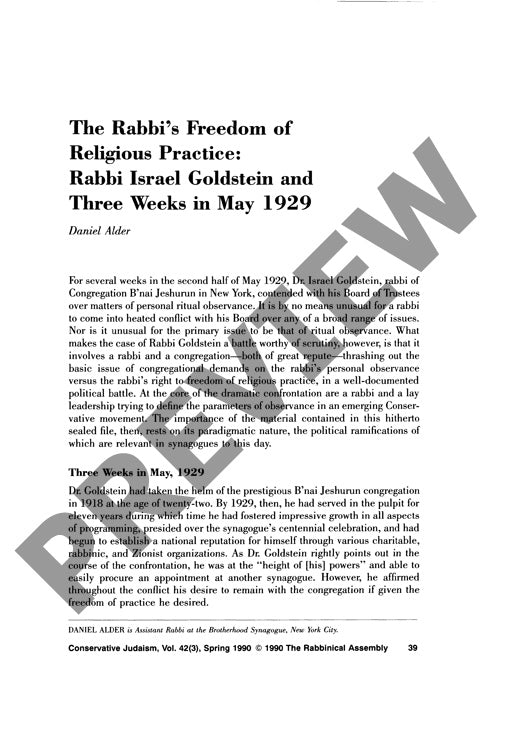The Rabbis Freedom of Religious Practice
Couldn't load pickup availability
A pivotal 1929 confrontation between Rabbi Israel Goldstein and his synagogue's Board of Trustees exposed deep fault lines in American Conservative Judaism's struggle with religious authority and personal autonomy. When Goldstein, leader of New York's Congregation B'nai Jeshurun, requested exemption from orthodox Sabbath and dietary restrictions while proposing synagogue ritual reforms, he ignited a three-week political battle that would shape denominational discourse. Drawing on newly accessible synagogue archives, including board minutes, correspondence, and institutional records, this research reveals how congregational politics directly influenced religious decision-making in early Conservative Judaism. The conflict culminated in Goldstein's reluctant withdrawal of his demands, as the board successfully asserted that halakhic law superseded individual rights and that a rabbi's personal religious choices remained subordinate to his role as spiritual exemplar. This paradigmatic case illuminates persistent tensions within Conservative Judaism regarding the parameters of religious observance, the double standard between rabbinic and lay practice, and the complex interplay between rabbinic autonomy and communal leadership - issues that continue to shape contemporary synagogue governance.

More Information
-
Physical Description
-
Publication Information
Published 1990
ISBN
-
Publication Credits
Daniel Alder

